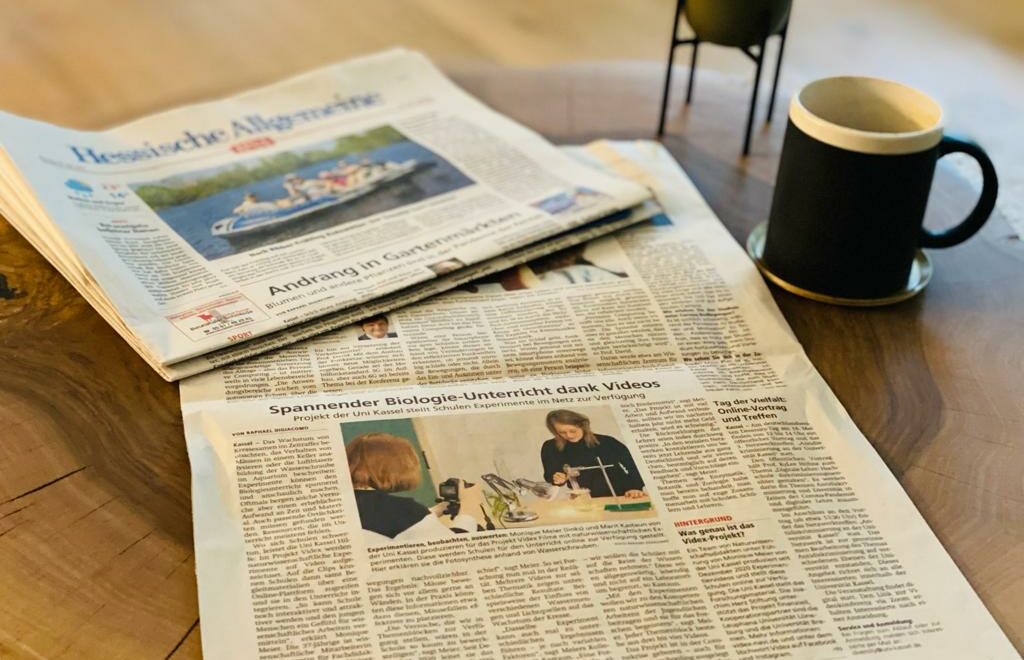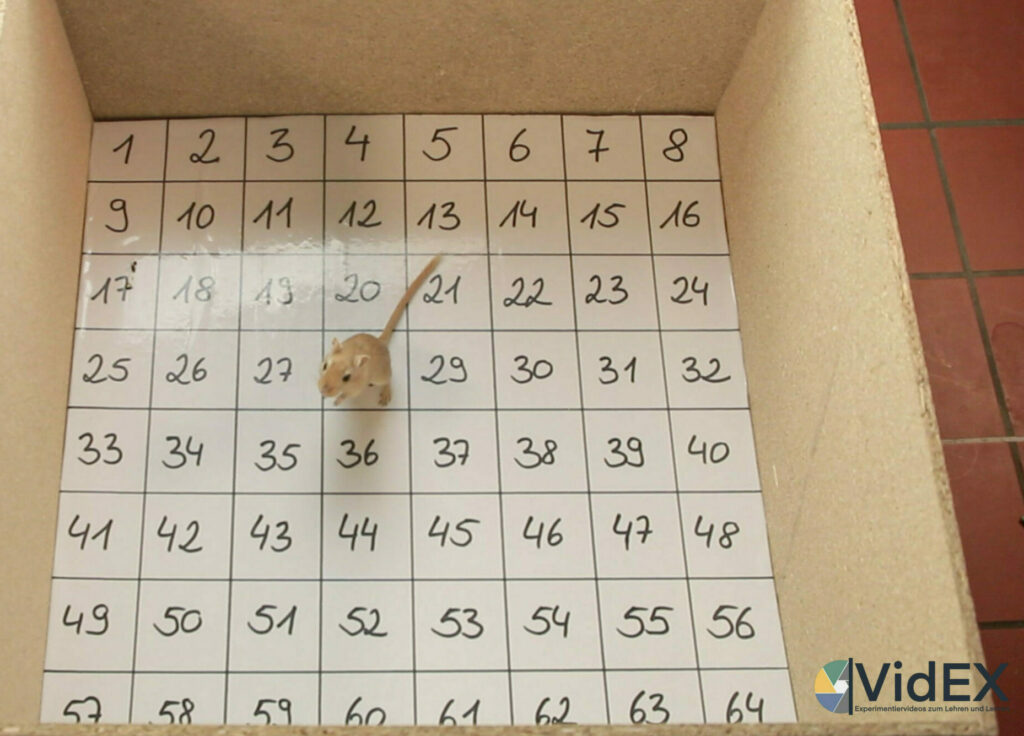Publications
VidEX is a practical, developmental and research project at the same time. In addition to the development of experimental videos and materials for the modules, the dissemination of conceptual foundations, teaching ideas and research findings is very important to us.
Henze, L., & Meier, M. (2024)
Pflanzen in Bewegung: Darstellung einer interaktiven, multimedialen und differenzierten Lerneinheit zur Thematik Bewegungsphysiologie von Pflanzen. BU Praktisch – Das Online-Journal für den Biologieunterricht, 7(1). (Beitrag)
Plants in motion: Presentation of an interactive, multimedia and differentiated learning unit on the topic of plant movement physiology. BU Practical – The online journal for biology lessons, 7(1). (article)
Stinken-Rösner, L. & Meier, M. (2023):
Experimentiervideos – Mehr als ein Ersatz für Realexperimente. Plus Lucis, 3, 17-21.
Experimental videos – More than a substitute for real experiments. Plus Lucis, 3, 17-21.
Meier, M. (2023):
Videoformat-Experimentiervideo. Unterricht Biologie Kompakt, 490, S. 15-18 (Materialen zum Beitrag).
Video format experiment video. Unterricht Biologie Kompakt, 490, p. 15-18(Materials for the article).
Meier, M., Henze, L. & Kastaun, M. (2023):
Umweltfaktoren beeinflussen die Honigverdauung. Mit Experimentiervideos forschend lernen. Unterricht Biologie, 489, S. 31-36.
Environmental factors influence honey digestion. Learning through research with experimental videos. Teaching Biology, 489, p. 31-36.
Pfafferodt, L., Meier, M. & Kastaun, M. (2023):
Unterschiedliche Messmethoden und deren Anwendung. Experimentiervideos am Beispiel der Fotosynthese. MNU Journal, S. 302-307 (Beitrag).
(Different measuring methods and their application. Experimental videos using the example of photosynthesis. MNU Journal, pp. 302-207 (German Article).)
Stinken-Rösner, L., Weidenhiller, P., Nerdel, C., Weck, H., Kastaun, M. & Meier, M. (2023):
Inklusives Experimentieren im naturwissenschaftlichen Unterricht digital unterstützen. In D. Ferencik-Lehmkuhl et al. (Hrsg.), Inklusive Digital! Chancen und Herausforderungen inklusiver Bildung im Kontext von Digitalisierung, S. 152-167. Verlag Julius Klinkhardt KG.
(Digitally supporting inclusive experimentation in science education. In D. Ferencik-Lehmkuhl et al. (eds.), Inclusive Digital! Opportunities and Challenges of Inclusive Education in the Context of Digitisation, pp. 152-167. Verlag Julius Klinkhardt KG.)
Meier, M., Kastaun, M. & Stinken-Rösner, L. (2022):
Experimentiervideos im naturwissenschaftlichen Unterricht. Lehren und Lernen mit und durch VidEX. In E. Watts & C. Hoffmann (Hrsg.), Digitale NAWIgation, S. 51-65. Edition Fachdidaktiken. Springer.
(Experimental videos in science teaching. Teaching and learning with and through VidEX. In E. Watts & C. Hoffmann (Eds.), Digital NAWIgation, pp. 51-65. edition Fachdidaktiken. Springer.)
Meier, M., Stinken-Rösner, L. & Zeller, D. (2022):
Vom Rezipieren zum Interagieren – Interaktive Videoformate für den naturwissenschaftlichen Unterricht. Unterricht Biologie, 475, S. 44–47.
(From Receiving to Interacting – Interactive Video Formats for Science Teaching. Teaching Biology, 475, pp. 44-47.)
Stinken-Rösner, L. (2022):
Von der Industrie in die Schule – Virtual Reality im Physikunterricht: Anregungen zum Einsatz virtueller Videoexperimente und Exkursionen. Unterricht Physik, 198/190, S. 44-48.
(From Industry to School – Virtual Reality in Physics Teaching: Suggestions for the Use of Virtual Video Experiments and Excursions. Unterricht Physik, 198/190, pp. 44-48.)
Zeller, D. & Meier, M. (2022):
Videos interaktiv erweitern. Forschendes Lernen vielseitig unterstützen. digital unterrichten BIOLOGIE, 4, S. 10-11.
(Expanding videos interactively. Supporting research-based learning in many ways. digital unterrichten BIOLOGIE, 4, p. 10-11.)
Press releases
10.05.2021 HNA:
We were very pleased that our VidEX article appeared in the “Hessische Allgemeine” alongside the daily political and local news. With the title “Exciting biology lessons thanks to videos”, Dr Monique Meier and Marit Kastaun introduced the idea and objectives of VidEX and reported on the first experimental videos.


16.04.2021 University of Kassel
Science school subjects have the advantage of being able to impart knowledge through experiments. One problem, however, is that one lesson is not enough for many experiments. The VidEX project, in which the University of Kassel is involved, aims to remedy this and actively shape experimentation in biology lessons at schools.
To the press release